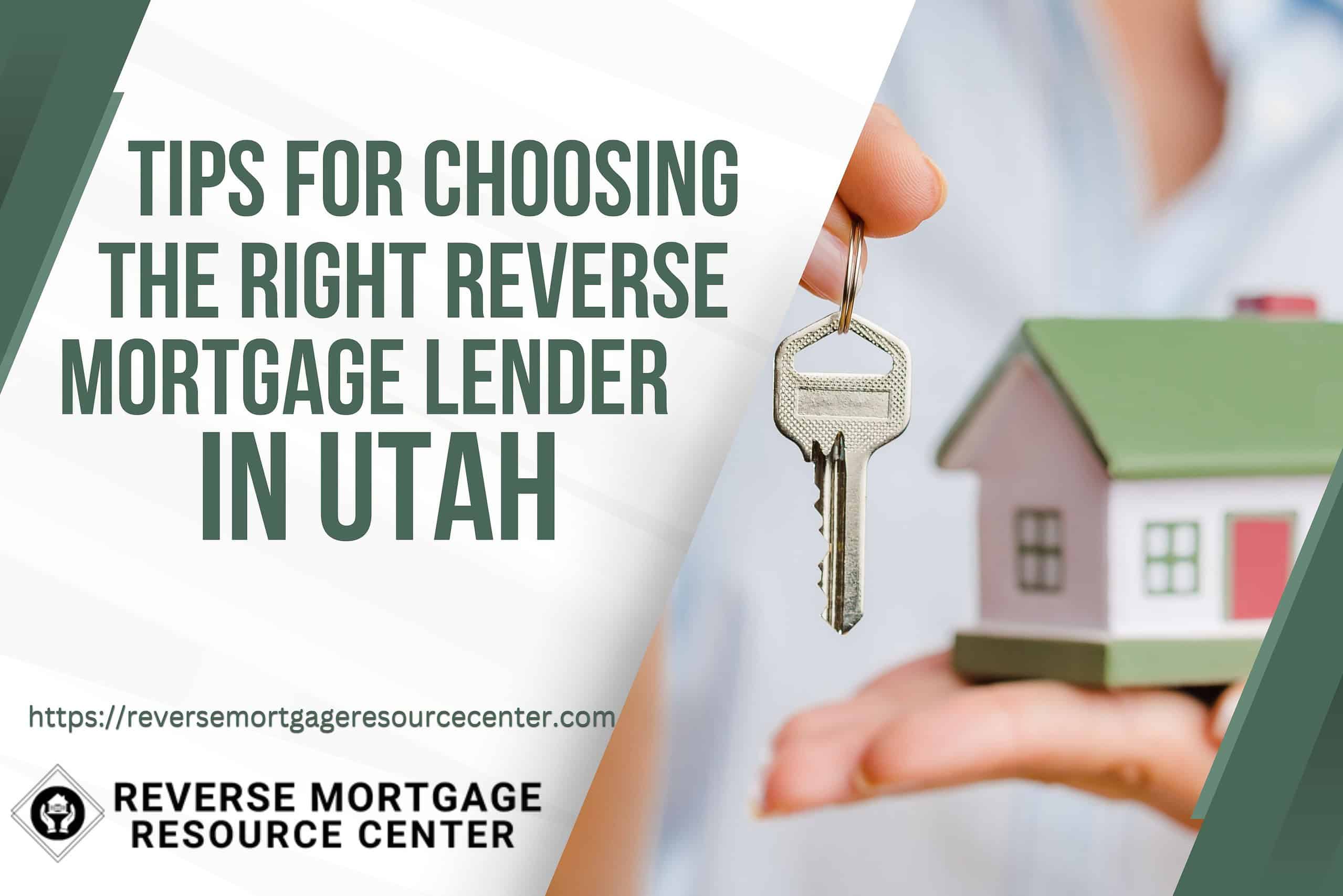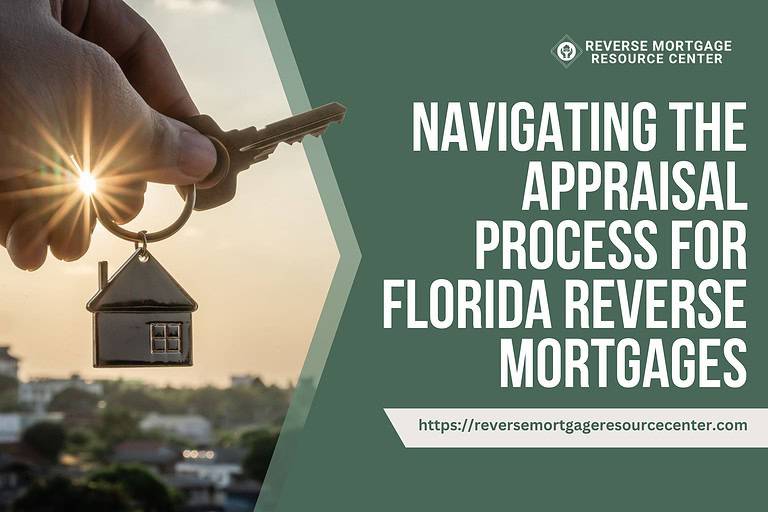Tips For Choosing The Right Reverse Mortgage Lender In Utah
Finding an appropriate reverse mortgage lender in Utah can be overwhelming, as the decision has considerable financial repercussions. Reverse mortgages, which allow homeowners to access their home equity without selling or moving, have risen in favor among seniors wishing to supplement their retirement income. Thus, understanding the complexities of this financial instrument and locating a reliable lender is critical for making an informed decision.
Several essential aspects should be addressed when analyzing possible reverse mortgage lenders to aid prospective borrowers in navigating this challenging terrain. Understanding the various types of reverse mortgages available, researching each lender’s reputation and industry experience, comparing loan terms and interest rates offered by numerous providers, evaluating customer service and communication channels provided by each company, and preparing appropriate questions to ask during consultations with potential lenders are all part of the process. Individuals seeking a reverse mortgage can easily pick a qualified provider that corresponds with their needs and circumstances by properly reviewing these components of the financing process and making well-informed comparisons among various possibilities.
Understand the Different Types of Reverse Mortgages
Understanding the distinctions between the many reverse mortgage choices on the market is vital to making an informed decision. There are three sorts of reverse mortgages:
- Single-purpose reverse mortgages
- Proprietary reverse mortgages
- Home Equity Conversion Mortgages (HECMs)
Some state and municipal governments and non-profit organizations provide single-purpose reverse mortgages, enabling homeowners to borrow against their home equity for specific purposes like home improvements or property taxes. Private loans backed by the company that generates them, proprietary reverse mortgages are generally tailored for borrowers with high-value houses who wish to access higher amounts of their equity. HECMs are federally insured loans that the federal government backs. The Housing and Urban Development (HUD) provides greater flexibility regarding disbursement alternatives and usage.
Understanding eligibility restrictions is also vital while researching various types of reverse mortgage products. Proprietary reverse mortgage lenders may have different age limits and restrictions exclusive to their product offers. Because these loans are intended for low- to moderate-income homeowners, single-purpose reverse mortgages often contain income restrictions.
Considering loan purpose, borrower eligibility criteria, repayment structure preferences, fees associated with each type of loan product (e.g., origination fees), and potential tax implications associated with accessing home equity funds through a specific option will all play a role in determining which type of reverse mortgage best aligns with individual needs and goals. Prospective borrowers can increase their chances of finding a reverse mortgage solution that meets their unique financial objectives by thoroughly examining all aspects of each available option within Utah’s marketplace, including researching a lenders’ reputations and customer reviews, comparing interest rates and fees across multiple providers, and consulting with unbiased experts such as HUD-approved counselors.
Research Lender Reputation and Experience
Examining the lender’s reputation and experience is critical to achieving a great outcome when picking an appropriate reverse mortgage lender in Utah. For example, examining internet reviews and testimonials from prior clients might provide significant information about the lender’s level of service. Furthermore, ensuring that the lender has sufficient licensing and accreditation from relevant authorities assures compliance with legal standards. It adds more confidence when entrusting one’s financial issues with such an institution.
Check Online Reviews and Testimonials
Examining internet reviews and testimonials might provide useful information about the legitimacy and performance of Utah reverse mortgage lenders. These reviews frequently emphasize critical features of a lender’s services, such as professionalism, timeliness, and capacity to keep promises. Potential borrowers can acquire insight into their experiences when working with a specific lender by evaluating feedback from prior clients. Furthermore, analyzing testimonials may reveal patterns or trends that consistently suggest whether a lending organization meets or exceeds client expectations.
It is critical to investigate numerous sources when reviewing internet reviews and testimonials to construct an accurate portrayal of a lender’s reputation. Websites such as the Better Business Bureau (BBB), the Consumer Financial Protection Bureau (CFPB), Yelp, and Google Reviews can provide a variety of opinions on a company’s performance. Obtaining referrals from friends or family members who have previously obtained reverse mortgages in Utah may also provide more personalized insights about individual lenders. Finally, by completing extensive research and synthesizing information from numerous sources, prospective borrowers will be better equipped to make informed judgments when choosing the best reverse mortgage lender in Utah.
Verify Licensing and Accreditation
Ensuring that a potential lender is appropriately licensed and certified is critical because it confirms their validity and adherence to industry standards. Utah’s lending institutions are regulated by the Utah Department of Financial Institutions (UDFI) and Federal regulatory agencies. These organizations establish precise licensing standards, such as passing background checks, and employing competent people. Prospective borrowers can gain more confidence in a reverse mortgage lender’s professionalism and commitment to ethical standards by confirming that the lender holds an active license with these agencies. [You can verify licensing at www.nmlsconsumeraccess.org]
Reverse mortgage lenders should be accredited by respected independent industry associations such as the National Reverse Mortgage Lenders Association (NRMLA). Through a strong code of ethics and professional conduct norms, this association sets high standards for its members. NRMLA membership indicates that a lender is committed to upholding the best standards in the reverse mortgage sector while offering clients clear information regarding loan possibilities. Seeking lenders with the necessary licenses and accreditations can substantially assist individuals in selecting reliable lenders capable of providing exceptional service throughout the borrowing process.
Compare Loan Terms and Interest Rates
Entering the world of reverse mortgage lenders in the Beehive State necessitates a comprehensive examination of loan terms and interest rates, similar to how a watchmaker meticulously selects the best gears to produce an accurate timepiece. Because of these factors’ complexity and potential long-term influence, careful investigation and comparison among various lenders is required. Homeowners must obtain advantageous loan conditions and competitive interest rates suited to their financial circumstances.
1. Fixed vs. Adjustable Interest Rates: When evaluating reverse mortgage loans in Utah, it is critical to consider both fixed-rate and adjustable-rate alternatives offered by various lenders. Fixed-rate loans maintain a set interest rate for the life of the loan, whereas adjustable-rate mortgages (ARMs) may fluctuate based upon current market conditions. You can assess the best type for your scenario by weighing each option against your financial objectives.
2. Loan Term Length: Loan term durations might vary widely among reverse mortgage packages offered by Utah lenders, depending on your preferences. When deciding between shorter and longer-term loans, it is critical to consider how long you intend to stay in your house and how quickly you want to access funds from your equity.
3. Fees and Closing Costs: Reverse mortgage loans frequently include origination fees, servicing fees, and closing costs, all of which add to the overall cost of acquiring this type of loan product. Comparing these fees across different lenders can assist in identifying those who provide more reasonable solutions.
As homeowners navigate an ocean of reverse mortgage lender options in Utah, knowing key factors such as loan terms and interest rates proves invaluable in making informed decisions that align with individual financial objectives—much like how a seasoned ship captain skillfully employs tools at their disposal for smooth sailing towards their destination port-of-call: optimal retirement solutions tailored specifically to their needs. Homeowners can guarantee they are maximizing the best reverse mortgage chances available in the Beehive State by taking the time to thoroughly analyze these essential characteristics among prospective providers before signing any agreements.
Evaluate Customer Service and Communication
Navigating the complex world of reverse mortgage lenders in Utah necessitates carefully evaluating customer service and communication quality, as these variables play a vital role in creating an effective partnership and ensuring successful loan transactions. Knowledgeable, responsive, and compassionate personnel prioritizing clients’ needs and giving tailored support throughout the loan process define high-quality customer service. Furthermore, successful communication requires lenders to maintain regular contact with borrowers to update them on critical information such as application status, rate adjustments, or any important industry news. As a result, comparing these characteristics among potential lenders will help you choose one that provides the best support during this financial decision-making process.
Prospective borrowers could consider using a variety of tactics to successfully evaluate customer service and communication skills. Seek references from friends or family members who have already worked with a Utah reverse mortgage lender; their firsthand experience can provide significant insight into the lender’s level of support and responsiveness. Furthermore, internet reviews from other borrowers provide further information about the quality of customer service particular companies provide. Furthermore, contacting potential lenders via phone calls or consultations allows individuals to assess how well representatives treat them and whether their inquiries are adequately answered.
Based on their interactions with company employees, prospective borrowers can choose which reverse mortgage lender will best suit their unique needs by evaluating these customer service characteristics. It is critical to meet immediate needs and develop a good working connection throughout the loan process, from initial inquiry to final repayment. Individuals can have greater confidence in their comfort level with their chosen company by prioritizing excellent customer service and effective communication when selecting a reverse mortgage lender in Utah, thereby making well-informed decisions regarding this significant financial undertaking.
Prepare the Right Questions to Ask
Prospective borrowers can effectively evaluate potential reverse mortgage lenders in the Beehive State by arming themselves with essential questions. Borrowers may guarantee they are dealing with the appropriate lender for their requirements and expectations by preparing the correct questions to ask. This preparation not only aids in developing confidence between both parties but also allows for a more transparent and efficient financing procedure.
1. How long has the lender been offering reverse mortgages?
2. What are their interest rates and lending terms like?
3. Are their products subject to any hidden costs or penalties?
4. Can they provide references from happy customers who completed the reverse mortgage process?
The preceding questions serve as a guidepost for analyzing whether a specific lender has the knowledge, competitive rates, transparency, and client satisfaction required to build a successful partnership. Borrowers may discover nuances highlighting key differentiators among competitors in Utah’s marketplace as they delve deeper into these topics during discussions with potential lenders—detailing aspects such as customer support quality, responsiveness to inquiries, or even ongoing education programs offered by various institutions.
By conducting thorough research before choosing a reverse mortgage lender in Utah and asking pointed questions that address critical success factors within this niche industry sector—one can dramatically increase their chances of securing an advantageous financial arrangement explicitly tailored to their unique circumstances, while mitigating risks inherent in navigating unfamiliar territory. Finally, this proactive approach, combined with strategic inquiry, enables people looking for reverse mortgages to make informed selections closely connected with long-term goals. This ensures permanent peace of mind throughout each step of life’s winding route.
Frequently Asked Questions
What are the licensing requirements for reverse mortgage lenders in Utah, and how can I verify if a lender meets them?
Specific licensing criteria for reverse mortgage lenders are mandated in Utah to ensure compliance with federal and state rules. The requirements include:
- Obtaining a Mortgage Entity License
- Holding a surety bond
- Conducting background checks
- Satisfying minimum net worth standards
Lenders must hire at least one licensed loan originator who has completed the necessary schooling and passed national and state-specific examinations. Individuals can check the Nationwide Multistate Licensing System (NMLS) Consumer Access portal or call the Utah Division of Real Estate to verify whether a prospective lender adheres to these high standards. This research enables prospective borrowers to make informed selections when choosing a trustworthy reverse mortgage lender in Utah.
Are there any local or state-level programs in Utah that can provide additional support or resources for seniors considering a reverse mortgage?
Seniors considering a reverse mortgage in Utah may discover additional assistance and resources through local or state-level programs geared to meet their specific requirements. For example, the Utah Department of Commerce’s Division of Real Estate provides reverse mortgage lenders with educational materials and licensing information, ensuring borrowers are well-informed about the financing process and associated laws. Furthermore, numerous non-profit organizations throughout the state offer reverse mortgage counseling services, ultimately assisting elders in making informed financial decisions. Utah citizens can manage the intricacies of reverse mortgages with better confidence and clarity by accessing these tools and communicating with appropriate institutions.
How does the cost of living in Utah impact the amount I can borrow through a reverse mortgage, and are there any regional factors to consider when choosing a lender?
The cost of living in Utah’s stunning landscapes significantly affects how much one can borrow through a reverse mortgage. Because this financial product is intended to offer seniors access to readily available funds based on their home equity, geographical factors such as property valuations and local economic conditions can impact borrowing capacity. When choosing a reverse mortgage lender, examining these particular regional characteristics, reputation, fees, and customer service is critical. Understanding the complexities of Utah’s cost of living and its implications for reverse mortgage borrowing can help seniors make informed decisions as they navigate this complex financial landscape.
Are there any tax implications or benefits specific to Utah residents when obtaining a reverse mortgage?
The tax consequences and benefits of reverse mortgages for Utah residents are critical factors to consider when examining this financial plan. The Internal Revenue Service (IRS) does not generally consider reverse mortgage earnings taxable income, which may provide an advantage for some homeowners. However, it is important to note that property tax obligations and exemptions vary by state and municipality. In Utah, homeowners 66 and older who fulfill certain criteria may be eligible for the Circuit Breaker Tax Abatement. This property tax relief program might cut their annual property taxes while ensuring they can meet their responsibilities as reverse mortgage borrowers. Individuals should speak with a certified tax advisor to assess their circumstances and determine any tax issues or benefits associated with acquiring a reverse mortgage in Utah.
How do Utah’s foreclosure rules and regulations differ from other states, and how might this affect my decision when choosing a reverse mortgage lender?
Compared to other jurisdictions, Utah’s foreclosure rules and regulations are a true maze, which may considerably impact one’s decision-making process when selecting a reverse mortgage lender. Primarily, Utah employs both judicial and non-judicial foreclosure methods, making it critical for prospective borrowers to understand the complexities of both processes to defend their interests. Furthermore, Utah’s unique “one-action” rule requires lenders to choose between pursuing the borrower for a deficiency judgment and conducting a foreclosure sale; this distinction is critical because it can affect borrowers’ financial liability if they default on their reverse mortgage loans. Full awareness of these complexities is critical in choosing the right lender and handling possible issues that may develop over the loan’s life.
REVERSE MORTGAGE RESOURCE CENTER ~LIVE LIFE ON YOUR TERMS~
Our Lending Team has been serving our clients since 2004. We are passionate about serving our clients with integrity to help them achieve their financial goals.






